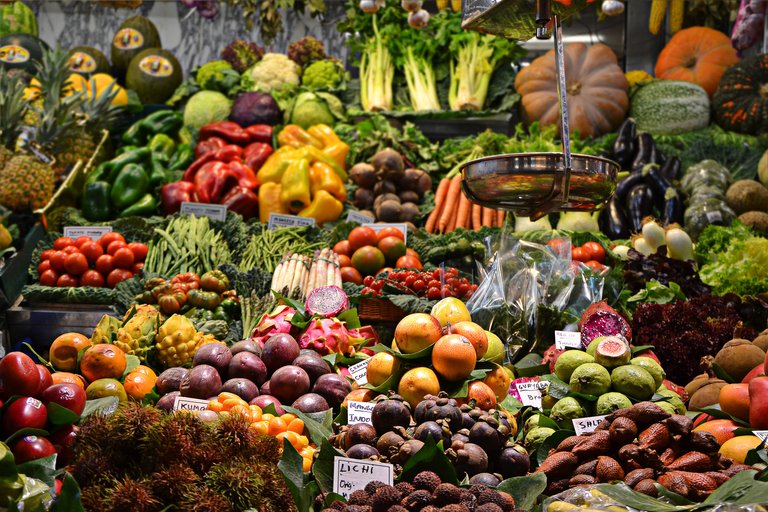
Here is something that has always intrigued me. A claim that, just because you eat a Vegan style diet, you aren't getting enough of the right types of nutrients. Having a background in personal training, I wasn't ever sure that I was completely sold on this. Now I will state that I do not have a background in nutrition, but being a personal trainer does require some knowledge of the topic. Trainers do often provide meal plans for their clients as well.
So naturally when curiosity peaks, I did some research on the topic to share with you guys. Selfishly I also wanted to ensure that I was incorporating anything my body may have been missing.
Just so we understand each other, when I speak of vegan eating habits, I am referring to the eating of a plant based diet only. In case you are wondering what is the difference between being vegan and vegetarian, vegetarians still consume dairy and eggs.
So now that we have the cleared up, on with the research findings!
The following nutrients are claimed to be missing from the vegan diet:
Vitamin B12
One of the eight B vitamins. Also called cobalamin, are micro-organisms that have a key role in the normal functioning of the brain and nervous system via synthesis of myelin, and the formation of red blood cells.
Calcium
Essential for healthy bone growth and development, muscle contraction, heart action, and normal blood clotting.
Iron
The mineral that is essential for transportation of oxygen throughout the body via hemoglobin in red blood cells
Zinc
An essential trace element for its physiological role such as a cofactor of many enzymes
Further detail - enzymes are biological molecule that speed up the rate of virtually all chemical reactions in cells
Let's take a look at each one individually.
Vitamin B12 can also be found in many soy and rice beverages, as well as soy based meat products are often fortified with it. The best way to prevent the under consumption of this vitamin is to eat fortified foods two to three times daily, or consume enough supplementation to offset. Either one daily, of at least 10 micrograms, or one weekly, of at least 2000 micrograms.
Calcium is probably one of the easiest things to supplement for, majorly because this is something that both vegans and non-vegans consume with the same food. I would almost argue that this is probably one of the things thrown out by major food corporations to fight against a lifestyle that doesn't include their products. Foods that are high in calcium can include kale, okra, spring greens, dried figs, almonds, and chia seeds.
Iron is another assumed "missing" product of the vegan diet. While I certainly fail to see the correlation that this will be missing if you are a vegan, some may argue otherwise. If you're looking to add more Iron into your diet, look to consume foods such as lentils, chick peas, beans, cashews, pumpkin seeds, kale, raisins, quinoa, and fortified cereals.
Zinc is pretty much found in anything that Iron is found in, with the exception of some wholemeal breads. So yet again, we are failing to see any correlation of this missing from a vegan diet.
Now cooking vegan style foods is another great topic, but we will save that for a later post!
I hope this helps clear the air a bit, but would also love to hear what your thoughts on the matter are. Please drop a comment below, start a conversation, and let me know what else you would like to see in a blog post on this topic!
Thanks for tuning in Steemers, and that is your Daily Dose of Dapperness!

About Me
Hi, my name is Blake. I'm a true fan of the 1950's style gentleman, a father by trade, and adventurer by night.
Connect with me on social:
so you've found that B12 is the only thing you need to supplement?
Great question! Green tea, and some other fermented products (kombucha), also contains B12. But fans of rice milks, or soy milks and soy meat products will also find that they are supplementing enough.
Vegans need fewer nutrients than meat-eaters due to a diminished toxic load, assuming you're not a chemical-vegan. Ignore the FUD, eat the sunlight, and live for an extra 100 years.